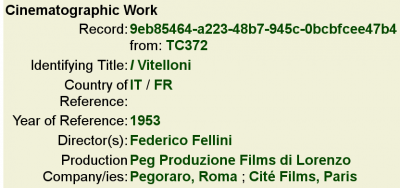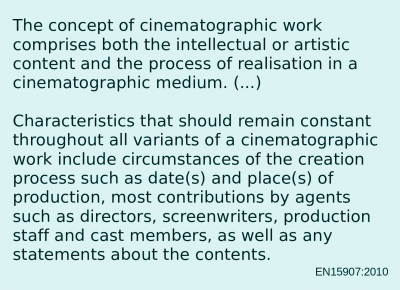Difference between revisions of "Description levels: A worked example"
From filmstandards.org
(Created page with "Description levels do not only offer new ways for user interaction with filmographic databases, but can also ecenomise the production of metadata. {| style="float: right; borde...") |
(No difference)
|
Revision as of 20:17, 4 April 2011
Description levels do not only offer new ways for user interaction with filmographic databases, but can also ecenomise the production of metadata.
|
<mediaplayer image='http://filmstandards.org/media/prossimamente2.jpg'>http://filmstandards.org/media/vitelloni-trailer-it.flv</mediaplayer>
|
This short piece is a trailer. For the moment, we will ignore the question if a trailer can be regarded as a version or variant of the work which it advertises, or if it is something entirely different. This trailer just serves to give us an idea of the work that will be discussed in the following. |

|
An elementary work-level description would comprise the elements from EN 15744 minus those that do not belong to the work level in EN 15907. The figure on the left gives an idea of what a minimum work-level description could look like. Here is the XML record, the transformation script, and the resulting HTML page. |
